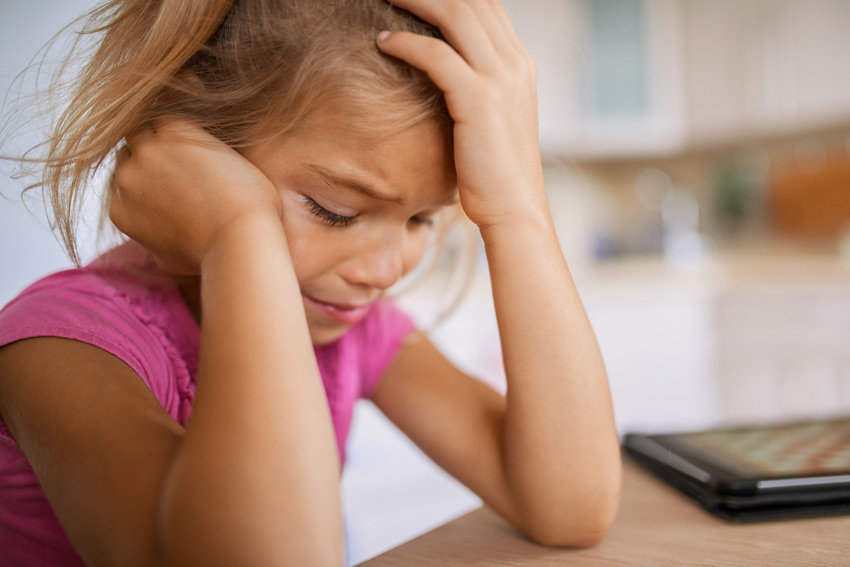We all experience trauma in some form during our lives.
Bullying, car accidents, or a sports injury are all considered varying types of traumas. Some trauma affects our physical body exclusively, some our psyche, and some traumas affect both. Some types of trauma are single instances, and others recur over years – even decades.
Each type of trauma is processed differently by our brain, and our reactions to the trauma (and future reminders of it) are shaped by what happened. Traumas experienced as children can change how we look at people and experiences as we grow older. If past trauma is not dealt with appropriately, or if the trauma is recurring or continual, there is a greater chance of adapting “ritualized, compulsive comfort-seeking” through substance use.
What Are ACEs?
According to the CDC, adverse childhood experiences (ACEs) are potentially traumatic events or aspects of a child’s home environment that can threaten their sense of stability, safety, or bonding occurring between birth and age 17. ACEs can include household experiences of violence or abuse, suicide (or attempts) by a family member, witnessing domestic or community violence, mental health problems, substance misuse, and parental separation or incarceration.
A survey of adults across 25 states reported that nearly 61% experienced at least one form of ACE. Nearly 1 in 6 of those surveyed reported experiencing four or more forms. These experiences can not only affect a person’s education and job opportunities as adults, but are also connected to mental illness, chronic health problems, and substance misuse.
Why Are ACEs So Damaging?
According to Adi Jaffe, Ph.D. of Psychology Today, many important developmental milestones fill the first years of life, including making attachments, developing new brain pathways, relating to others, and developing coping mechanisms for stress. When ACEs are present, they damage and disrupt these milestones and skills. In response, a child develops survival mechanisms that can turn into unhealthy patterns as they mature.
ACEs affect many aspects of a person’s life and are exacerbated by other potentially negative conditions, such as frequent moving, living in racially segregated/under-resourced neighborhoods, and food insecurity. When the stress from conditions like these is prolonged or extended for periods of time (sometimes years), it is considered toxic stress.
ACEs and toxic stress during formative years can create difficulty for children as they grow; as adults, they may be unable to form and maintain stable relationships, perform well at work, or manage finances. They may develop depression, a wide range of chronic diseases, or substance use disorder. ACEs can lead to issues such as promiscuity, teen pregnancy, cancer, heart disease, diabetes, and suicide.
Can the Cycle Be Broken?
Short answer: yes. However, like anything worthwhile, it is not going to be easy. ACEs are one reason why substance abuse seems to run in families. The cycle of abuse – causing childhood trauma and toxic stress – is a prime example. When a parent, grandparent, or other close family member has a substance use problem, it makes it more likely that the behavior will be passed on to the next generation.
The byproducts of substance abuse (neglect, lack of food, physical/emotional/sexual abuse, etc.) are also forms of ACEs and toxic stress. Children growing up in homes dominated by substance use disorders have two strikes against them already the moment they are exposed to this lifestyle. They learn coping strategies from role models who make poor or dangerous choices on likely a daily basis.
Several programs released by the CDC help communities and states lessen the number of ACEs in hopes of preventing subsequent problems in the lives of at-risk children. By offering positive role models, alternative activities, after-school help, and educational resources about the dangers they face – and how to avoid them – these programs give children a higher chance of breaking the cycle.
If you know someone who is suffering from substance use disorder and are concerned for the youth and children they influence, look into the ideas listed in the previous paragraph’s link or visit this ACE prevention page for ideas of how you can step up to help them. Staging an intervention, if necessary, can be a huge help to the children involved as well.
We Can Help
If you are struggling with substance abuse and want to know more about how ACEs may have influenced your path – or if you are unknowingly causing toxic stress for your own family – you can take this quiz to see what your ACE score (or theirs) is. Remember that it’s never too late to start making the right choices. The staff at St. Gregory is here to help you work through the factors that got you into your current habit. Our goal is your recovery, sobriety, and physical and mental health.







